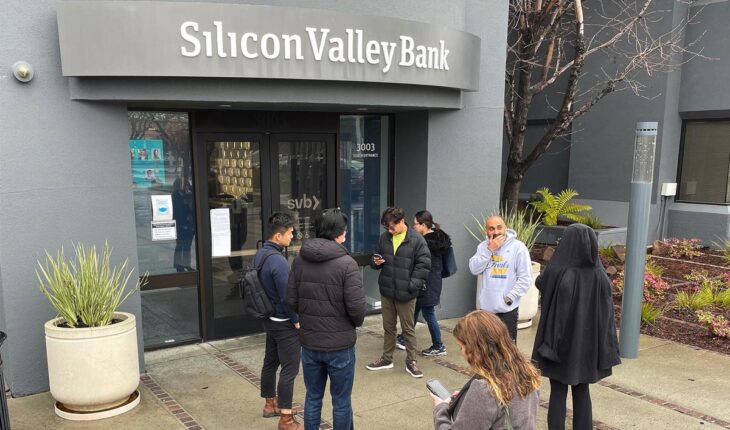
The sudden economic collapse of America’s Silicon Valley Bank has shaken the whole world recently.In just 5 days, this bank was declared bankrupt. It is also worth noting here that during the Corona epidemic, when all the sectors of the economy were in a phase of decline, deposits of this bank in America rose exponentially. Then what went wrong that this bank, which was the main source of income for Amarican technology startups with , fell apart? It is worthwhile to mention that this bank was established in 1983 and after 5 years of its establishment, it was listed on Nasdaq in the US stock market through an IPO in 1988. From 1996, it started banking business in 15 major states of America and since 2008 it expanded its presence in other countries as well.
It is very important to clarify here that there can be two main reasons for any bank’s financial failure or reaching the brink of bankruptcy. First, non-repayment of financial loans and becoming NPAs (non- performing assets). Second, the sudden withdrawal of deposits from the bank by the depositers themselves. Normally, the first option is more discussed on the failure of any bank and perhaps for this reason, the central bank of any country has a strong supervision on the bank’s loan policy so that the economic crises of the banks does not have any impact on the society. If option number two, which is not very prevalent, happens, then surely society has a right to know who is the main culprit behind it? The financial ruin of Silicon Valley Bank has been caused by option number two. The bank’s official website so far contains facts that its total deposits are 342 billion US dollar, while the financial loans given by it were only 74 billion US dollar and it also has various assets worth 212 billion US dollar. But exactly the opposite happened in the bank. At first, the bank lost 180 billion US dollar in a single day on selling of its investments made in government securities.The move sparked rumors that the bank was rapidly running short of financial liquidity, resulting in investors pulling out 40 billion US dollars of their financial deposits from the bank in a single day. This move led to shortage of cash in the bank and resulted in the bank being declared bankrupt.
In fact, the main reason behind this episode of Silicon Valley Bank is the changes in economic policies of America in the past. During the Corona period, when interest rates were too low to maintain per capita purchasing power, American technology startups had a lot of financial investment, which they deposited continuously in silicon valley bank in exchange for a good return. As a result, the bank’s deposits doubled in the same period. After the pandemic i.e.in the current financial year 2022-23, the US Fed suddenly changed its economic policies and increased US interest rates significantly to strengthen the dollar relatively against all other currencies in the world. The main reason behind this was also to bring down the sky high inflation rate. The financial impact of this policy suddenly fell on the economic policies of Silicon Valley Bank, which was probably neither predicted by the American Fed nor the Silicon Valley Bank. When Silicon Valley Bank was getting a lot of financial deposits from American technology startups, it invested them in American government securities or bonds because the rate of interest in them was quite attractive during that time. Over the past one year, when the US Fed has raised interest rates significantly, suddenly the value of investment in government securities or bonds started falling as the rate of interest on them was comparatively much lower and they were now not attractive. As a result, Silicon Valley Bank started incurring losses on its investment. In this panic condition, when the investor started selling investments in government securities, the deficit increased further and this news discouraged all financial investors and made them to feel insecure. As a result, most investors started withdrawing their financial investments immediately from Silicon Valley Bank. In this context, it is also important to mention that the amount deposited per investor in this bank was 250000 US dollars, which was much higher than small banks. The second main problem with this bank was that the investment in this bank came only from technology companies and for the last few years, technology companies or startups have been facing economic crisis, as a result there was always a restlessness among all of them about their financial deposits.
Now it is argued in India whether India’s banking system is like the American banking system. On this side, it has to be made very clear that India’s banking system is completely safe, although in the current financial year, the Reserve Bank of India has also increased the repo rate more than four times so that the level of inflation can be controlled. Certainly, this move of the Reserve Bank of India has caused economic losses to all the banks that had invested in government securities. But this was predicted by India’s central bank in 2018 and hence all banks have to keep financial planning equivalent to 2 percent of investment in government securities as a financial fund so that financial security can be provided to investors through it.
According to the available data, when interest rates were increased in the first quarter of the current financial year, Indian banks also suffered losses of around Rs 15,000 crore, but they all are safe because they already had financial funds related to it. It would also be appropriate to mention that banking failure is very rare in Indian history and even if an example comes up, immediately after that the policies of the banks are made very transparent by the Indian Reserve Bank and its compliance is followed by all small and big banks. The economic recession of 2006 in America was also due to the economic ruin of one of their big investor banks, but even after that, if America’s banking system is not completely transparent till date, then it is a matter of great economic concern. It is often said that the anticipation of America’s recession already leads other countries into despair. The positive thing about India’s economy is that there is strict adherence to banking policies, whether it is Basel III rules or other important information. All banks are required to comply with all of them. Therefore, it is imperative to say that Indian banking is completely safe and it’s the backbone of our strong economy.
Dr. P.S. Vohra , Academician, Financial Thinker & Newspaper Columnist , Views are personal






